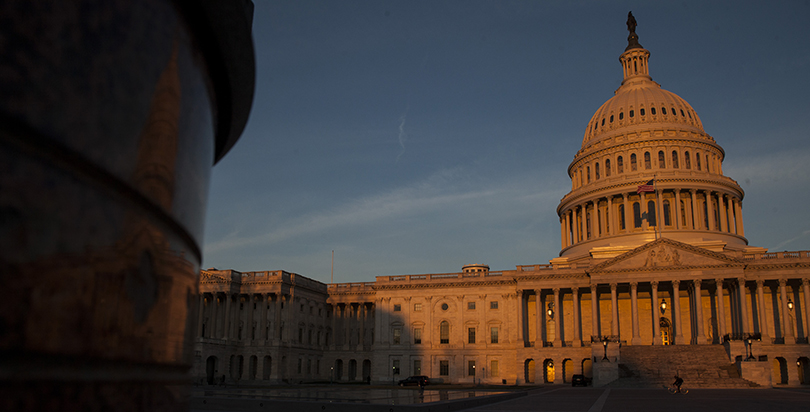House Committee Considers Education Spending Bill That Trims Trump’s Cuts, Drops Funding for Private Choice

President Trump had proposed cutting the agency’s overall budget by about $9 billion and adding $1 billion in new public school choice dollars through Title I and a $250 million pilot program for private school vouchers.
(The 74: Trump Ed Budget Fleshes Out Choice Proposal, Justifies Deep Cuts)
The bill to be considered by a House Appropriations subcommittee Thursday instead proposes funding the department at $66 billion, a $2.4 billion cut. Most of that cut, about $2 billion, comes from eliminating grants given to support teacher training and salaries, often called Title II.
Members of both parties, in the House and the Senate, have been skeptical of the scale of the administration’s proposed eliminations, and Democrats sparred with Education Secretary Betsy DeVos over the school choice proposals.
(The 74: DeVos Says IDEA, Other Federal Laws Apply to Private Voucher Schools, but No Pledge on LGBT)
Neither the $250 million voucher program nor the $1 billion in Title I “portability” — where funds intended for low-income students follow them as they transfer among schools — are part of the measure. The Appropriations committee did propose increasing funding for the charter school program to $370 million, or a $28 million increase. Trump proposed pumping $158 million more into federal charter school funding.
The committee included a $200 million boost for funds given through the Individuals with Disabilities Education Act, to a total of $12.2 billion. Increasing special education dollars has long been a bipartisan priority.
Among other major K-12 education programs, Title I grants to states that support the education of low-income children would see a small cut. And although the Trump administration proposed cutting Title IV block grants that fund a myriad of K-12 programs through the Every Student Succeeds Act, the House bill would fund it at $500 million, $100 million more than the current fiscal year.
Appropriators did agree to two minor education program eliminations the Trump administration had requested: Striving Readers, a literacy program, and an overseas foreign language study program.
The bill also includes programs overseen by the Labor and Health and Human Services departments, including preschool programs run out of HHS.
Head Start, which provides early childhood education to low-income and homeless children, would get $9.3 billion, a $22 million increase. House lawmakers would give $2.8 billion to Child Care and Development Block Grants, which help low-income parents afford day care. That’s a $4 million increase.
Under ideal circumstances, Congress is supposed to pass, and the president sign, 12 individual spending bills, each covering a different set of programs.
Congressional leaders have for the past several years instead relied primarily on continuing resolutions that keep the government open without setting new policies, and omnibus bills that combine most, or all, of those 12 bills into one large measure.
The Labor-HHS-Education bill, which covers thorny issues outside education, from union elections to abortion, is perennially among the most contentious.
In recent years, Appropriations committees often haven’t even considered a bill. A standalone Labor-HHS-Education bill hasn’t been passed by both houses and sent to the president since 2007, when President George W. Bush vetoed it for spending too much.
The Dick & Betsy DeVos Family Foundation previously provided financial support to The 74.
Get stories like these delivered straight to your inbox. Sign up for The 74 Newsletter

;)
